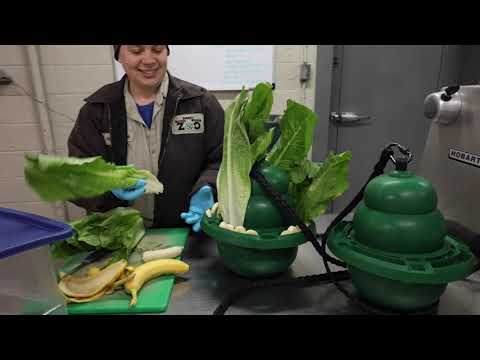– The roles and responsibilities of zookeepers at BREC’s Baton Rouge Zoo
– The application of zoology and wildlife conservation principles in zoo management
– How BREC’s behind-the-scenes actions contribute to global wildlife conservation efforts
– The relationship between educational outreach and conservation success in zoos
– Addressing the challenges of zoo management and animal welfare
Zookeepers play a pivotal role in the daily operation and long-term success of zoos around the globe. Their work extends far beyond feeding and cleaning the animals. At BREC’s Baton Rouge Zoo, zookeepers are integral to both the physical and psychological health of the animals under their care. Their day-to-day responsibilities involve monitoring animal health, designing enrichment activities to stimulate natural behaviors, and maintaining habitat enclosures that closely mimic an animal’s natural environment. This hands-on approach requires a profound understanding of animal behavior and physiology, mirroring broader principles of zoology and wildlife conservation.
Incorporating zoology and wildlife conservation into zoo management is essential for fostering environments that support animal welfare and species preservation. The Baton Rouge Zoo, like many others, employs strategies grounded in the latest scientific research to create ecosystems that cater to the specific needs of its inhabitants. This includes the provision of varied diets, complex habitat designs, and regular health checks, all of which align with the zoo’s commitment to mimic the natural world as closely as possible. Yet, zookeepers also undertake continuous education to stay abreast of the latest animal care and conservation science advancements, ensuring their practices are both effective and ethical.
BREC’s behind-the-scenes efforts do more than meet the immediate needs of their resident animals; they also contribute significantly to global wildlife conservation projects. The Baton Rouge Zoo participates in numerous breeding programs to preserve endangered species, collaborating with other zoos and conservation entities worldwide. These programs are critical for maintaining genetic diversity and, in some cases, reintroducing animals into their natural habitats. Moreover, BREC strongly emphasizes research, contributing valuable data on animal health, behavior, and breeding that can inform wider conservation strategies. This collaborative, science-driven approach exemplifies how zoos can serve as arks of hope for threatened species.
Furthermore, zoos like BREC’s Baton Rouge Zoo recognize the power of educational outreach in promoting conservation success. Through engaging exhibits and interactive programs, zoos stimulate interest and foster a deeper understanding of wildlife conservation among the public. This educational mission is two-fold: it raises awareness about the myriad threats facing wildlife and empowers individuals to take action in their own lives, whether through supporting conservation efforts or adopting more sustainable practices. By drawing visitors into the fascinating world of animals, zoos create a platform for advocacy and change, turning every encounter into a potential conservation win.
Despite their crucial role in conservation and education, they manage a zoo and ensure optimal animal welfare, which presents ongoing challenges. These range from addressing the needs of an incredibly diverse species to navigating zoo operation’s logistical hurdles. Each species requires specialized diets, habitats, and care, demanding zookeepers possess a broad but detailed skill set. Adapting to the individual needs of animals, particularly those with complex social structures or specific environmental requirements underscores the art and science of zookeeping. Additionally, zoos must balance public engagement with the need to provide quiet and privacy for their animals, a task that becomes increasingly complex in the face of growing visitor numbers.
The work done by the BREC’s Baton Rouge Zoo staff highlights the intricate balance between animal care, public education, and conservation. Through their dedication, zookeepers provide for the needs of the animals in their care and contribute to the broader mission of saving wildlife and wild places. Their efforts underline modern zoos’ important role in conservation and education, proving that well-managed zoos can act as vital centers for animal welfare and advocates for the natural world. Through this lens, BREC Behind the Scenes: Zookeepers offers a compelling view of the critical, yet often unseen, work that underlies zoo operations and animal conservation efforts, illuminating the challenges and triumphs faced by those on the front lines of wildlife protection and education.
*****
Source Description
This year, we’re bringing you behind the scenes at various areas and locations throughout BREC so you can get an insider’s view of how our team is working to make your park system top-notch. Our first feature is BREC’s Baton Rouge Zoo, where we look at what the keeper staff gets up to as they care for the zoo residents day in and day out. #BTS #BehindtheScenes


